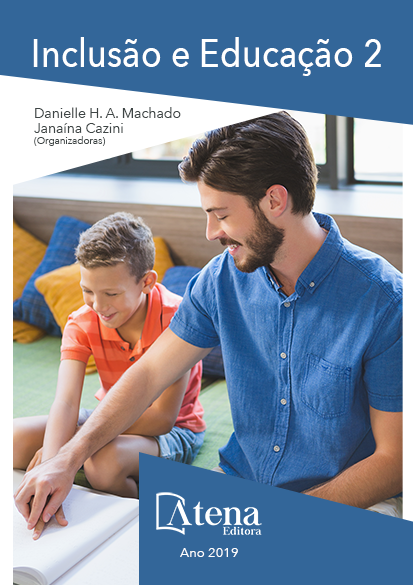
EDUCAÇÃO INCLUSIVA: UM ESTUDO SOBRE A AVALIAÇÃO DE ESTUDANTES SURDOS NA ESCOLA REGULAR
Este trabalho pretende discutir as
premissas que se referem à prática de avaliação
destinada aos estudantes surdos, analisando
os critérios e instrumentos avaliativos que os
educadores utilizam em suas práticas. Sabese
que avaliar é algo complexo na realidade
educacional e que a avaliação deve ser
contínua. Os instrumentos avaliativos além de
atribuir uma nota, devem antes de tudo, ser
um momento de aprendizado para educandos
e educadores. A opção metodológica do
presente trabalho é fundamentada na pesquisa
qualitativa, em que é possível enfatizar aos
fenômenos acontecidos não só no campo de
investigação e observação, como também
nas vivências dos sujeitos e fora deles. Os
resultados revelam que legislativamente houve
muito avanço quanto às orientações no sentido
da inclusão. No entanto, há muito que se fazer
para um melhor atendimento de estudantes
surdos nas instituições escolares de ensino
regular. No que diz respeito à prática educacional
e avaliativa é relevante pensar numa melhor
estruturação teórica que vise preparar melhor
os atores educacionais envolvidos nesse
processo, principalmente no que concerne às
suas práticas avaliativas.
EDUCAÇÃO INCLUSIVA: UM ESTUDO SOBRE A AVALIAÇÃO DE ESTUDANTES SURDOS NA ESCOLA REGULAR
-
DOI: 10.22533/at.ed.3081915019
-
Palavras-chave: Educação Inclusiva, Avaliação, Surdez.
-
Keywords: Inclusive Education, Evaluation, Deafness
-
Abstract:
This study intends to discuss the
premises that refer to the evaluation practice
for deaf students, analyzing the evaluation
criteria and instruments that educators use
in their practices. It is known that evaluating
is complex in educational reality and that
evaluation must be continuous. The evaluation
instruments, besides assigning a grade, should,
above all, be a moment of learning for learners
and educators. The methodological option of
the present work is based on the qualitative
research, in which it is possible to emphasize
the phenomena that happened not only in the
field of investigation and observation, but also
in the experiences of the subjects and outside
them. The results show that there has been
much legislative progress towards the inclusion
guidelines. However, there is much to be
done to better serve deaf students in regular
school institutions. Regarding educational and
evaluative practice, it is important to think of a
better theoretical structure that aims to better
prepare the educational actors involved in this process, especially regarding their
evaluation practices.
-
Número de páginas: 15
- VANESSA NICOLAU FREITAS DOS SANTOS


